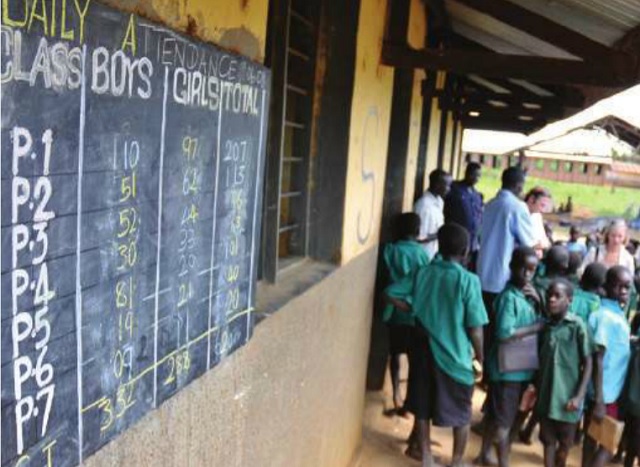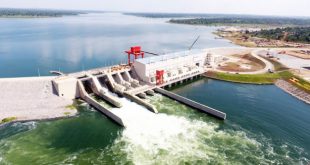
Expert urges government to match plans with implementation to reverse wide disparity between GDP and citizens’ quality of life
A new report has shown that it is possible for a country to have vast economic wealth yet have citizens who are living a poor quality of life. The latest Social Progress Index (SPI) shows for example that while Uganda’s GDP is three times more than Rwanda’s according to World Bank data, Rwandans enjoy a better quality of life than Ugandans. Also, Tanzania’s GDP is four times higher than that of Mauritius yet Mauritians enjoy the best quality of life in Africa.
The Index is produced by the US-based nonprofit Social Progress Imperative, and measures how well countries deliver social goods to their people, including education, health and wellness, housing, opportunity, personal rights, personal safety and tolerance. Social progress, as defined by the SPI as the “capacity of a society to meet the basic human needs of its citizens, establish the building blocks that allow citizens to improve their lives, and create the conditions for individuals and communities to meet their full potential.”
On this year’s SPI, Uganda is ranked 107 among the 133 countries surveyed, behind Kenya (99) and Rwanda (105) but ahead of Tanzania (109). Mauritius tops the list in Africa ahead of Tunisia, South Africa and Botswana in that order. According to latest World Bank data, Uganda has a GDP per capita of $1,825 compared to Tanzania’s $2,667, Rwanda’s $1,758 and Kenya’s $3,082. The ranking is in tandem with the Human Development Index, which is generated by UNDP.
Prof. Augustus Nuwagaba, a development scholar and lecturer, told The Independent in an interview that social progress is a function of several factors including social policy, government priorities, governance and public accountability.
Over the years, the World Bank has emphasized lifting the GDP as a way of ensuring that citizens enjoy a better quality of life. However, Michael Green, the Social Progress Imperative executive director, noted that the SPI proves that GDP is not destiny as countries such as Costa Rica have managed to squeeze a lot of social progress out of their modest GDP.
The report says social progress depends on the policy choices, investments, and implementation capabilities of multiple stakeholders—government, civil society, and business.
In Uganda, which is soon entering the production phase of its vast oil resources, the government is promising middle income status by 2020 when the oil money starts flowing.
But the SPI report shows that there could be more to life for citizens than for their country being just being wealthy. For example, the US, the world biggest economy by GDP, is ranked 19th among 133 countries in the world on the SPI, while Finland is this year’s top-performing country in the SPI, followed by Canada, Denmark, Australia, and Switzerland – countries whose GDP per capita varies quite a lot. Nuwagaba also mentioned South Sudan, Equatorial Guinea, Chad, Angola, Nigeria – all of which are top oil-producing countries yet they exhibit very high levels of poverty.
In contrast, Nuwagaba cites Norway, an oil producing country that is also enjoying social progress, which he attributed to its social democratic system of governance.
“They use their oil money very well unlike the predatory regimes and transactional States in Africa whose governments only focus on self-enrichment and all the public money ends up in foreign accounts in Switzerland,” Nuwagaba said.
He added that Botswana, Mauritius and Namibia are doing well because they employ economic nationalism whereby public resources are for the common good and not individuals.
Indeed, the report shows that with a GDP per-capita of $55, 836, the US delivers poor outcomes relative to its economic capacity in basic education, health and wellness, environmental quality, personal safety and freedom. The level of social-progress underperformance in the US is comparable to “wealthy” oil-producing countries such as Russia, China, Iran, Nigeria and Saudi Arabia, according to the SPI.
Going forward, Nuwagaba said the government can only lift the quality of life of its citizens by matching the excellent plans and programs on paper with implementation on the ground, curbing corruption, instilling a work-ethic in the population and widening the export market for local products so as to generate foreign exchange and instituting land reforms.
SPI Top 20 in Africa
1. Mauritius
2. Tunisia
3. South Africa
4. Botswana
5. Namibia
6. Morocco
7. Algeria
8. Egypt
9. Ghana
10. Senegal
11. Kenya
12. Malawi
13. Lesotho
14. Rwanda
15. Swaziland
16. Uganda
17. Benin
18. Tanzania
19. Republic of Congo
20. Burkina Faso
 The Independent Uganda: You get the Truth we Pay the Price
The Independent Uganda: You get the Truth we Pay the Price


